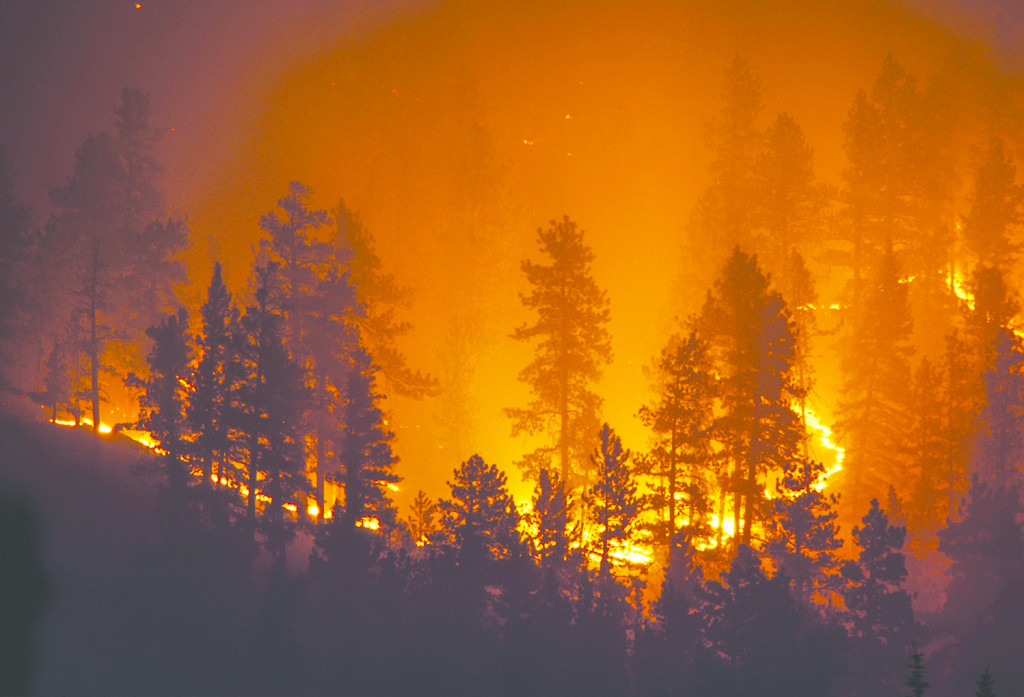Outdoor restoration introduced in Senate

SAN LUIS VALLEY — Earlier this week, Senator Michael Bennet introduced bi-partisan, bicameral legislation that hits on three topics of concern to Coloradoans, including many who live in the San Luis Valley: restoration of watersheds and forests, long-term prevention and mitigation of wildfires that have proven both deadly and destructive, and the creation of good, well-paying jobs.
The legislation, titled “The Outdoor Restoration Participation Act” carries a price tag of $60 billion, an amount that Bennet readily agrees is a big number. However, $60 billion is actually less than what was spent by the federal government in the suppression and clean-up of the wildfires that occurred in just three out of the last five years.
In 2020, more than 10.3 million acres in the United States were destroyed by fire, the result of more than 57,000 different fires that took 46 lives. The federal cost related to wildfires in 2020 was $16.5 billion. But that number actually ranked third out of the last five years. In 2018, wildfires cost the federal government $22 billion. 2018 was even worse with costs topping $24 billion.
That’s a total of $62 billion in federal funding spent in just three years of fighting and recovering from wildfires.
Last year was also devastating for Colorado. According to the federal National Interagency Fire Center, by the end of 2020, more than 667,000 acres of land had been destroyed by more than 1,070 separate wildfires, three of which were the largest in state history.
The 2020 cost of fire suppression in Colorado was more than $266 million. That figure reflects fire suppression only and does not include other costs such as the loss of structures, crops and pastures; loss of revenue brought in by tourism; the cost medical treatment for illnesses related to smoke, the salaries of law enforcement officials and highway maintenance personnel or the costs associated with evacuees and infrastructure shutdown.
Experts suggest this year may be worse. The 2021 spring assessment from the National Interagency Fire Center predicts “above normal” potential for large wildfires through May and “above normal significant potential for large wildfires to continue into June and expand throughout the state in the latter half of the month.”
“We’ve just come out of one of the worst fire seasons we’ve ever had ,” Bennet said at his press conference announcing the bill. “And the fires have come at a terrible cost, One reason the wildfire threat continues to grow in Colorado is because it’s hotter and drier and the wildfires are fed by the conditions of climate change and a century of fire suppression. But another less understood reason is Washington’s failure to invest in our forests and watersheds. In 2019, federal agencies reported over 100 million acres of federal land that are at high risk of fire. The Colorado Action Plan recently identified 2.4 million acres alone in urgent need of treatment.
“That’s why we wrote this bill. Forests, rangeland, and watersheds are essential, natural infrastructure that sustain our economy in Colorado and are as important as the Lincoln Tunnel or the Brooklyn Bridge in New York,” Bennet said. “For too long, Congress has failed to meaningfully invest in our western lands, undermining our economy and way of life.”
According to Bennet, the Outdoor Restoration Partnership Act changes that, investing in the West by creating good-paying jobs to improve forest health, restore watersheds, enhance wildlife habitat, and expand access to the outdoors.
Specifically, the bill would establish an Outdoor Restoration Fund to increase support for local collaborative efforts to restore forests and watersheds, reduce wildfire risk, clean up public lands, enhance wildlife habitat, remove invasive species, and expand outdoor access.
The Outdoor Restoration Participation Act will also create or sustain over two million good-paying jobs, primarily in hard-hit rural areas, to support existing industries like agriculture and outdoor recreation.
The bill calls for making $20 billion directly available to state and local governments, tribes, special districts, and non-profits to support restoration, resilience, and mitigation projects across public, private, and tribal lands plus an investment of $40 billion, spent in partnership with states and tribes, targeting projects to restore wildlife habitat and reduce wildfire risk across the country. This investment facilitates federal agencies partnering with local stakeholders to improve forest and watershed health and build climate and community resilience.
The bill will also save landowners and local governments money by investing in wildfire prevention and natural hazard mitigation, which is three to six times more cost effective than recovering from natural disasters like wildfires or post-fire floods, and generate over $156 billion in economic output, with a return of up to $15 for every dollar spent on restoration.
Senator Bennet originally introduced this proposal in December. Since then, President Biden included a commitment to invest in restoration and resilience in his American Jobs Plan, highlighting Bennet’s legislation as a model.
“I’m pleased President Biden recognized the importance of restoring America’s forests by including this proposal in his American Jobs Plan,” Bennet stated in a press release explaining the bill. “This legislation was written with - and inspired by - Coloradans, and I look forward to working with my colleagues in Congress to make it a reality.”
The Outdoor Restoration Participation Act was co-sponsored by U.S. Senator Ron Wyden (D-Ore). Representatives Jason Crow (D-Colo.) and Mike Simpson (R-Idaho) will introduce companion legislation in the U.S. House of Representatives.



